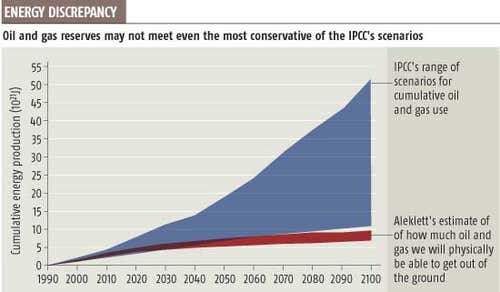Vietnam, a country renowned for its breathtaking landscapes and rich culture, stands at a critical juncture in its environmental journey. The phenomenon of global warming presents both an opportunity and a significant challenge for a nation whose economy is rapidly developing. As the global community collectively grapples with climate change, it prompts a thought-provoking question: How can Vietnam thrive economically while minimizing its footprint on our planet?
To understand Vietnam’s role in climate change, one must first consider its geography. Nestled in Southeast Asia, the country is characterized by its extensive coastline along the South China Sea. Unfortunately, this geography renders it susceptible to the adverse effects of climate change, including rising sea levels and extreme weather events. Major cities such as Ho Chi Minh City and Hanoi are particularly vulnerable, facing the dual threat of flooding and heatwaves. The challenge is not merely environmental; it implicates societal health, economic stability, and national security.
As Vietnam’s economy continues to expand, fueled by agriculture, manufacturing, and tourism, the resulting greenhouse gas emissions are becoming increasingly significant. The country ranks among the top emitters in Southeast Asia, largely due to its carbon-intensive industries. The expansion of industrial activities, such as coal mining and fossil fuel consumption, fuels economic growth but at a perilous environmental cost. The question looms large: Can Vietnam transition to a greener economy while maintaining its upward trajectory?
Vietnam’s agricultural sector, a cornerstone of its economy, also faces immense pressure from climate change. Rice production, which is vital for both food security and export revenues, is threatened by fluctuating rainfall patterns and temperature increases. The Mekong Delta, known as the “Rice Bowl” of Vietnam, is particularly at risk. With increasing salinity intrusion due to rising sea levels, farmers are confronted with a dilemma: continue traditional practices and suffer from diminishing yields, or adapt to new agricultural methods that may bear fruit in the long run.
Transitioning agriculture towards sustainability presents a formidable challenge. The integration of technology into farming practices can enhance resilience against climatic changes. However, does the average Vietnamese farmer have the resources and knowledge to adapt? Innovations such as drought-resistant crops and precision farming can significantly mitigate risks, yet implementation requires investment and education—both critical but often lacking components in rural Vietnam.
In addition to agriculture, Vietnam’s energy sector remains a prominent concern. A heavy reliance on coal-fired power plants has facilitated rapid industrial growth but simultaneously exacerbated greenhouse gas emissions. The government recognizes the urgency of this issue and has set ambitious targets to reduce emissions and enhance renewable energy sources, including wind and solar power. But can these efforts outpace the burgeoning energy demands of a developing economy?
The Vietnamese government has initiated policies aimed at fostering a green energy transition, yet challenges abound. The deployment of renewable technologies requires heavy upfront investments and substantial infrastructure development. A pressing question arises: Will Vietnam be able to balance economic growth with the urgent necessity for innovative energy solutions?
Public awareness and community involvement are pivotal in addressing Vietnam’s climate challenges. Grassroots movements and non-governmental organizations are becoming increasingly influential by advocating for sustainable practices. The youth of Vietnam, aware of the impending threats posed by climate change, are organizing and mobilizing for environmental justice. However, societal change cannot happen in isolation—what role do businesses and policymakers play in this collective endeavor?
Education emerges as a critical component in the fight against climate change. Fostering a culture of sustainability through educational initiatives can empower future generations to champion ecological stewardship. Imagine a future where every Vietnamese citizen understands the importance of their carbon footprint. Can a shift in educational curriculums propel the nation towards resilience?
International collaboration will also be essential in addressing climate change. As a member of several global climate agreements, Vietnam is committed to reducing its emissions. Partnerships with developed nations can provide the financial resources and technological expertise needed to tackle the climate crisis effectively. The question remains: Will the international community step up to assist Vietnam in its transition to a low-carbon future?
Moreover, Vietnam’s unique biodiversity is under threat due to climate change. The country is home to diverse ecosystems, from tropical forests to coral reefs. However, habitat destruction, driven by industrialization and climate pressures, could lead to drastic losses in biodiversity. The preservation of these ecosystems is crucial not only for the environment but also for the tourism sector, which is a significant contributor to the national economy.
Ultimately, Vietnam’s warming future presents both a daunting challenge and a captivating opportunity. The path forward hinges on implementing innovative solutions that embrace sustainability while driving economic growth. The country’s stakeholders must collectively engage in creating resilient strategies that harmonize environmental preservation with development objectives. The playful question posed earlier—Can Vietnam thrive economically while being a steward of the earth?—is both a challenge and a promise that explores the delicate balance between humanity’s needs and the well-being of our planet.
In conclusion, as Vietnam navigates its intricate relationship with climate change, it is essential to remain vigilant and proactive. The decisions made today will indelibly shape the future of this remarkable nation. By fostering awareness, encouraging community involvement, and prioritizing sustainable development, Vietnam can chart a course toward a vibrant, resilient, and environmentally responsible future. The world’s gaze is upon it, eagerly awaiting its next steps.






